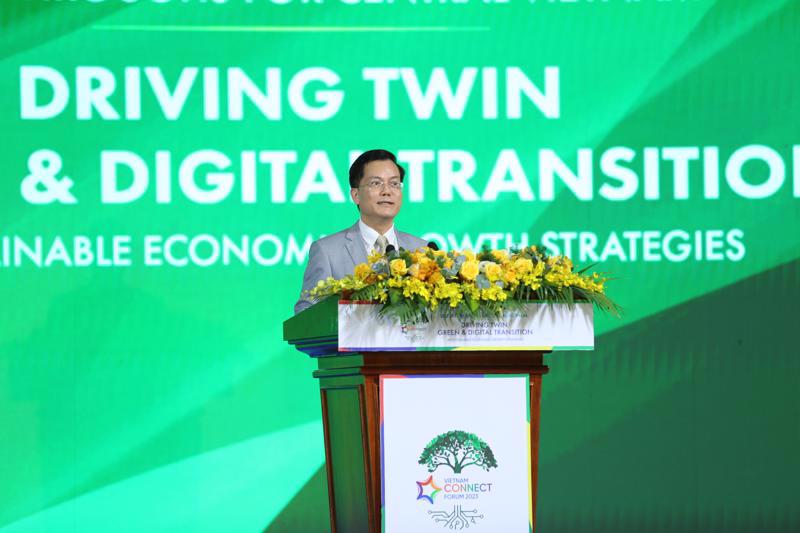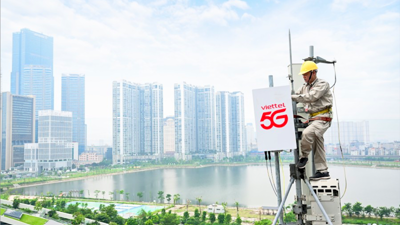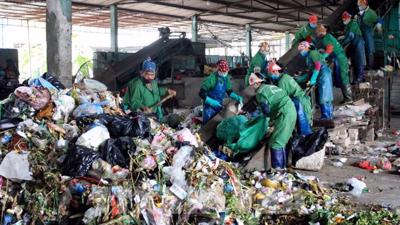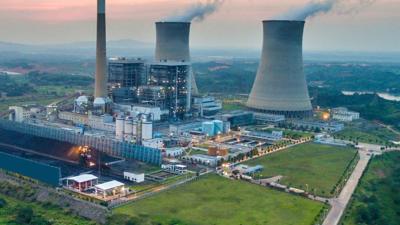Deputy Foreign Minister: Vietnam must change development model for green growth
Green growth and digital transformation have become development priorities in many countries.

Vietnam needs to change the old development model in order to post green and sustainable growth, Deputy Minister of Foreign Affairs Ha Kim Ngoc told the Vietnam Connect 2023 forum co-hosted by the Ministry of Foreign Affairs, VnEconomy / Vietnam Economic Times, and the Da Nang City People’s Committee on March 17 in the city.
The world has been experiencing the effect of pandemics, wars, climate change, and social problems of unprecedented magnitude and scale, negatively affecting globalization and international integration, he said.
Countries are seeking development models that are suitable to the new context in order to improve the creativity and resilience of their economies, tapping opportunities and overcoming challenges towards prosperity and sustainable development. In such a context, green growth and digital transformation have played important roles and become development priorities around the world. Countries and international organizations are strongly implementing regulations and commitments to promote digital and green transition.
“These two goals are strategic orientations for the recovery and development, and beyond that risk prevention for both public and private sectors,” Deputy Minister Ngoc said. “By renewing production and trade methods, combined with the effective use of natural resources and improvements to added value based on the application of achievements from digital transformation and Industry 4.0, the world is expected see an era of high and sustainable growth.”
In addition to major opportunities, the process of green and digital transition also poses certain development issues for countries, localities, and businesses, he went on. There are problems in development gaps and the risk of rising trade protection. Many countries are adjusting their economic and trade policies and adding sustainable criteria. It is therefore necessary to recognize the issues and adopt appropriate policies and measures at all levels.
In Vietnam, the transition from an outdated agricultural economy based on traditional biomass fuels to a modern mixed economy has led to a rapid increase in energy consumption, resulting in challenges in ensuring energy security, curbing environmental pollution, and addressing climate change.
In order to deal with such matters, he said, Vietnam has studied, built, and implemented many policies and actions towards the goal of rapid and sustainable development over the next decade while harmoniously developing the economy with culture, society, environmental protection, and climate change adaptation, by maximizing opportunities from Industry 4.0 for breakthrough development.
Green and sustainable economic development with a focus on digital transformation requires the determination and involvement of the entire political system and comprehensive implementation, with the foundation being digital transformation in localities.
The Vietnamese Government has developed major policies in a timely fashion and viewed green and digital transition as growth drivers towards long-term development goals by 2030, and the country has become one of the leaders in the region with strong commitments on climate change adaptation and net-zero emissions by 2050, with cooperation and support from international friends, as well as with active participation in new-generation free trade agreements (FTAs) with sustainable development elements, such as the Comprehensive and Progressive Agreement for Trans-Pacific Partnership (CPTPP) and the EU-Vietnam FTA (EUVFTA).
Current challenges require that countries, localities, and businesses prepare a long-term vision in building and implementing action plans for the goal of green and sustainable growth. This is also a time for countries to increase cooperation to overcome difficulties.
“In order to fulfil targets in sustainable, green, and modern development, Vietnam will have to change its old growth model based on natural resources to a greener growth model,” he said. “It will need huge financial resources and better international cooperation and must attract external resources such as capital, green finance, technology, and knowledge for its green and digital transition.”
Green and digital transition is an important content in Party and State policies and resolutions on promoting socio-economic development in regions and localities. The government has directed and guided ministries, agencies, sectors, and localities to implement tasks and measures to restructure the economy in connection with changing the growth model towards increasing productivity and quality, boosting the application of science and technology, and enhancing green growth, energy transformation, digital transformation, and innovation.
The Politburo has issued resolutions on the development of the central highlands region, and the north-central and central coastal region. On that basis, the government has proposed an action program to develop two strategic regions that are especially important in terms of economy, politics, security, defense, and foreign affairs, in association with the national strategy on green growth, the national strategy on sustainable development of the marine-based economy, and the national digital transformation strategy.
The central highlands region will focus on restructuring the economy towards developing the green economy and the circular economy. The north-central and central coastal region, meanwhile, will focus on developing a marine-based economy.
The Ministry of Foreign Affairs considers the central and central highlands region as a key area with ample space for development. With strengths in geography and climate for the development of green energy, the region is an attractive destination for foreign investors, he said.
“This forum is an opportunity for domestic and foreign agencies, organizations, and businesses to seek appropriate solutions in line with actual circumstances to attract green resources and green investment capital in the process of digital transformation in the central and central highlands region, contributing to building a sustainable economy,” he said.
Vietnam hopes to see cooperation and support in preferential credit, markets, technology, human resources training, green development administration, and green transition, he added.







![[Interactive]: Economic overview - April 2025](https://media.vneconomy.vn/400x225/images/upload/2025/05/06/5a245778-67b1-4874-a8dc-21f8cfed62a6.png)